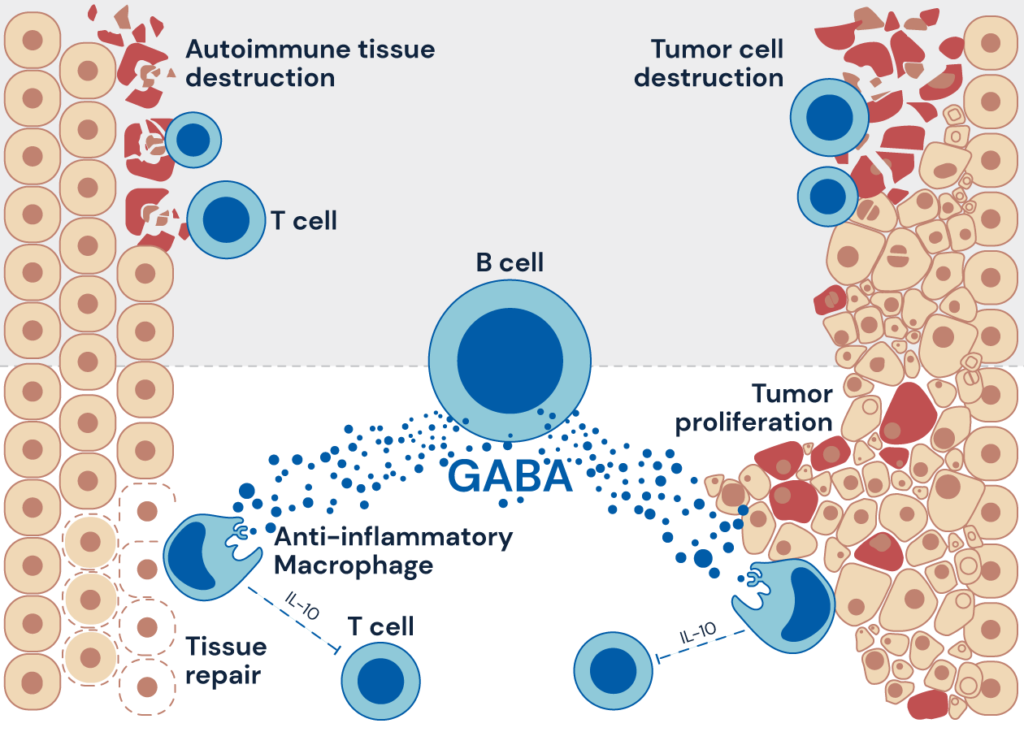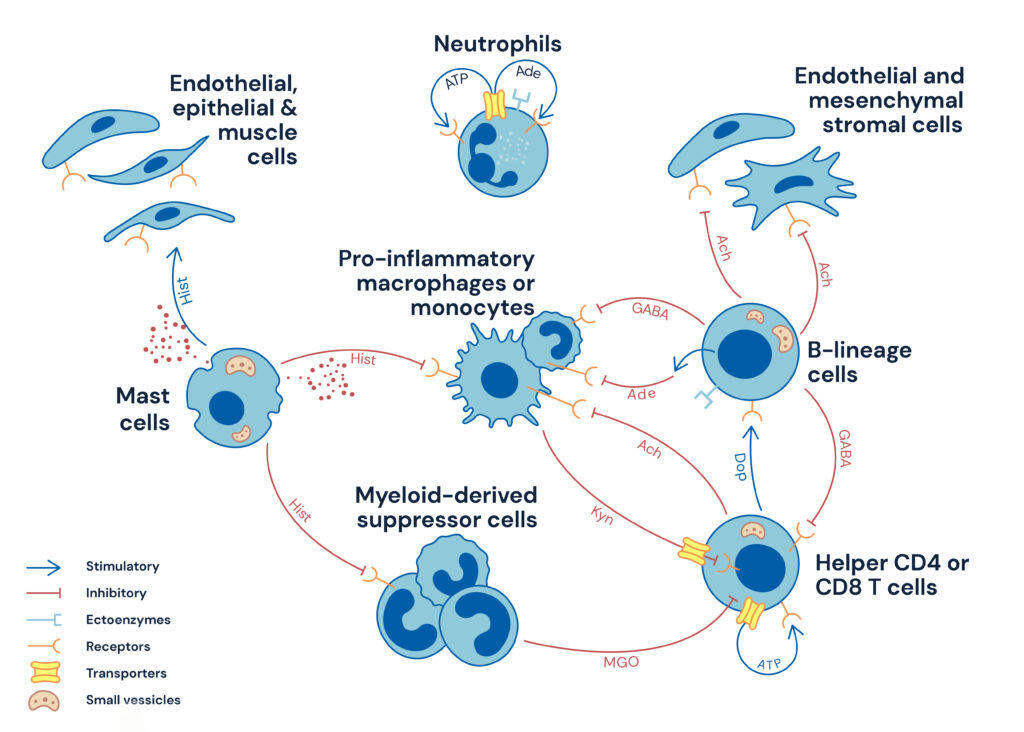Presentations

Research Focus
- Immune activation: Metabolic reprogramming of innate & adaptive immune cells associated with activation.
- Immune regulation: Deciphering the new language between immune cells mediated by metabolites. Role of small metabolites as signaling molecules regulating the immune cell function. Targeting the metabolism pathways aiming at enhancing anti-cancer immunity / taming autoimmune responses.
- Immune integration: Modes of communication between the immune system, microbiota & other major physiological systems. Impact of the immune cells on microbial & brain endocrinology in homeostasis & diseases.
Members
Professors

Professor
Sidonia Fagarasan

Masaki Tajima
Mission & Vision
Homeostasis can be defined as the ability of each tissue of the body to adapt its function to the environmental stimuli in a time and space specific manner, aimed to the optimal performance of the tissue and the overall fitness of the organism. For immune homeostasis, extracellular signals partner with intracellular biochemical pathways to orchestrate the immune response. Surface receptors, cytokines and hormones including neurotransmitters are all involved in regulation of the immune cell function.
Cytokines and their receptors are necessary for feed-forward & feed-back regulations required for proper immune responses relating to self-tolerance and symbiosis with endogenous bacterial communities / targeting and eliminating pathogens / cancers. Metabolites and hormones including neurotransmitters -derived from immune cells, bacterial / neuronal metabolism -, provide additional environmental cues likely mediating the immune cells function.
Fine-tuned regulation of the immune function is critical for homeostasis of the immune system and interacting systems like the gastrointestinal tract and its microbiome, cardiovascular / central nervous system. Indeed, in inflammatory settings like autoimmunity / cancer immunotherapy, we revealed that the strong metabolic needs of the immune system can have an impact on the systemic availability of essential cell building blocks such as amino acids, affecting distant physiological process such as neurotransmitter synthesis in the brain.
Our laboratory aims to clarify at high resolution how immune system co-opts such metabolites and neurotransmitters together with their downstream signaling for proper homeostasis. The global map of networking among different regulatory systems will provide new insights to overcome the gap between these machineries and establishing new categories of strategy to cure immune-related diseases.
For your reference see also: https://www.ims.riken.jp/labo/12/index.html
Selected Publications
Zhang, B., Vogelzang, A., Miyajima, M., Sugiura, Y., Wu, Y., Chamoto, K., Nakano, R., Hatae, R., Menzies, R.J., Sonomura, K., Hojo, N., Ogawa, T., Kobayashi, W., Tsutsui, Y., Yamamoto, S., Maruya, M., Narushima, S., Suzuki, K., Sugiya, H., Murakami, K., Hashimoto, M., Ueno, H., Kobayashi, T., Ito, K., Hirano, T., Shiroguchi, K., Matsuda, F., Suematsu, M., Honjo, T., Fagarasan, S. Bcell-derived GABA elicits IL-10+ macrophages to limit anti-tumour immunity. Nature 599, 471-476 (2021). https://doi.org/10.1038/s41586-021-04082-1.
Miyajima, M., Zhang, B., Sugiura, Y., Sonomura, K., Guerrini, M.M., Tsutsui, Y., Maruya, M., Vogelzang, A., Chamoto, K., Honda, K., Hikida, T., Qin, H., Sanuki, R., Suzuki, K., Furukawa, T., Ishihama, Y., Matsuda, F., Suematsu, M., Honjo, T., Fagarasan S. Metabolic shift induced by systemic activation of T cells in PD-1-deficient mice perturbs brain monoamines and emotional behavior. Nat Immunol 18, 1342–1352 (2017). https://doi.org/10.1038/ni.3867
Recruitment & Contact
We are permanently recruiting highly motivated students, postdoctoral fellows, and technical staff regardless of previous scientific backgrounds.
Please contact us using CCII’s contact form or by directly sending an email to recruit_ccii@mail2.adm.kyoto-u.ac.jp. Please indicate in which position and subject area you are interested in and that your inquiry is about our research division.


